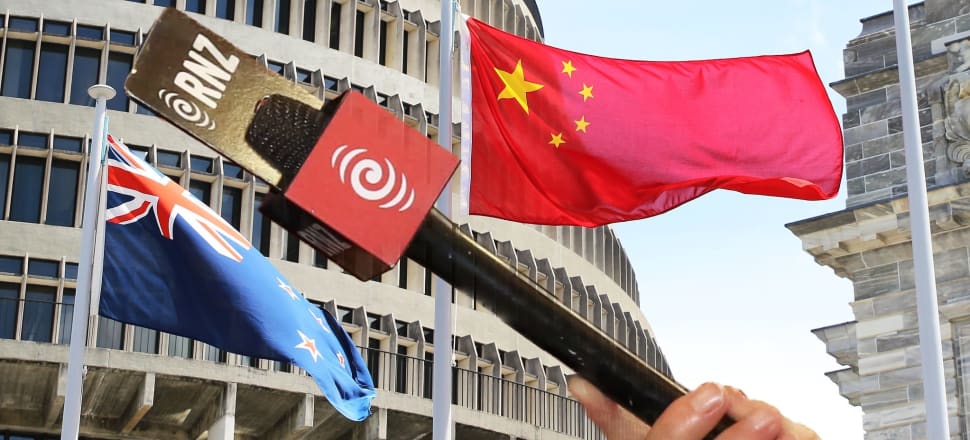
As concerns grow about the independence of some Chinese-language news outlets in New Zealand, RNZ is stepping up with plans to start writing and translating its own stories for Chinese Kiwis
Public broadcaster RNZ will start producing original Chinese-language stories and translations of other articles as part of a new Asia unit launching before this year’s general election.
The media outlet’s foray into foreign-language reporting comes against the backdrop of concerns about alleged censorship and foreign influence efforts affecting Chinese-language news media around the world – including New Zealand.
In 2021, Newsroom reported concerns that popular Chinese-language news site Skykiwi could be exposing New Zealanders to Chinese state surveillance.
READ MORE: * China media influence efforts on the rise - report * Concern over 'censorship' rules of NZ-Chinese news site * Chinese NZ Herald under Chinese state 'control' - experts
The Chinese New Zealand Herald website has also come under scrutiny. In 2019, Stuff revealed the website had edited translated articles from the NZ Herald to be more China-friendly, while later that year several experts told Newsroom the site could be described as a propaganda outlet for the Chinese government.
A 2021 research study commissioned by NZ On Air found some Chinese New Zealanders viewed local English-language content as being “parochial and insular”, while language challenges were a problem for others.
Some of those with good English felt that Chinese-translated news on sites such as the NZ Chinese Herald and Skykiwi was “biased or not 100 percent consistent with the English reporting”, the study said.
RNZ head of news Richard Sutherland told Newsroom the broadcaster had long been discussing how it could better reach New Zealand’s Asian communities, who lacked ready access to “unbiased, objective, traditional public media value[-driven] news and information”.
“It's a big market, but it's not a market that has been particularly well served by the existing mainstream media organisations.”
Sutherland said the unit’s establishment had not been driven by questions about the editorial independence of existing outlets, but he acknowledged RNZ’s high level of transparency and accountability would make the team’s work more valuable.
Local Chinese-language media who published their work into China or through Chinese apps such as WeChat were subject to Chinese law, with strict government edicts about what was acceptable content.
In addition to two Chinese-language reporters who would produce original content, the Asia unit would also include two translators tasked with translating RNZ’s current English-language stories into simplified Chinese.
Processes would be put in place to ensure Chinese-language translations were a true and accurate reflection of the original stories, while no topics would be put off limits.
Asked whether RNZ would make use of China’s state-backed social media platform WeChat, which is used by many Chinese New Zealanders but has been subject to claims of censorship affecting users in countries beyond China, Sutherland said it would “get the content out any way we can” while drawing a line at any suppression of its work.
“If we get censored, then we won’t be putting our stuff on it.”
NZ Contemporary China Research centre director Dr Jason Young told Newsroom previous studies had shown “massive differences” in how news stories were presented in Chinese media compared with mainstream English-language media.
Local Chinese-language media who published their work into China or through Chinese apps such as WeChat were subject to Chinese law, with strict government edicts about what was acceptable content.
“RNZ is not subject to the same kinds of pressures: particularly commercial pressures, but it also has to meet certain New Zealand standards for fair and critical reporting, so that should mean we have a broader set of issues on the table.”
Indian Kiwis: ‘More than dairy robberies’
The Asia unit will also include two Indian reporters, who will produce English-language stories for New Zealand’s Indian communities.
NZ On Air’s 2021 research found that Indian New Zealanders were more connected to local content than Chinese communities, but some had become disconnected as more news moved online.
Those surveyed wanted to be reflected more authentically in local content, rather than just “dairy robberies and arranged marriages”.
Sutherland said he hoped the Indian reporters’ stories would appear on RNZ in the same way that content from general news reporters did, giving Kiwis greater insights into the lives of “a sizeable part of New Zealand”.
The Asia unit manager was due to start working in early April, with the rest of the team expected to be hired and producing (primarily digital) content by June.
It would start life as a two-year pilot programme, with the first year already funded through the Public Interest Journalism Fund. The second year was due to be paid for by the new public media entity - since put on hold by the Government - but Sutherland said RNZ would find the necessary funding.
“This is like a beachhead, and we’ve got to get the people onto the beaches first … what I want to do is build something that fits with what New Zealand wants and needs.”







